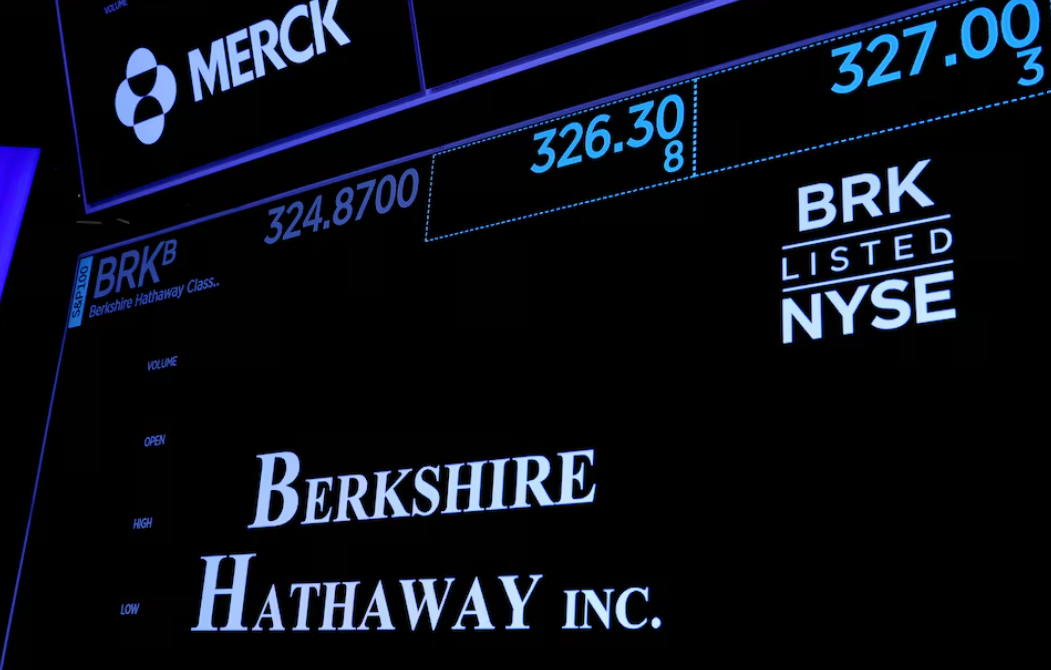Buffett's Berkshire Hathaway Unloads One-Third of VeriSign Stake for $1.23 Billion

The multinational conglomerate led by Warren Buffett, Berkshire Hathaway Inc., has dramatically reduced its holdings in internet infrastructure company VeriSign Inc., best known for managing domain names like .com and .net. Berkshire sold about 4.3 million shares at $285 apiece, aggregating gross proceeds of about $1.23 billion, as per a statement issued by VeriSign on Monday.
The sale accounts for about one-third of Berkshire's entire holding in the company and cuts its shareholding from 14.2% to 9.6%. VeriSign also indicated that it will sell a further 515,032 shares to satisfy additional demand but that the company will not gain financially from the sale.
The strategic move to drop Berkshire's holding below the 10% threshold seems to be motivated by regulatory reasons. In most jurisdictions, going over the 10% ownership level triggers further compliance obligations and filings, which Berkshire might have wanted to steer clear of.
VeriSign shares closed Monday at $305.98, but the shares sold to investors were offered at a 6.9% discount. Following the announcement, the stock fell 5.9% in after-hours trading to $288.00. Despite the dip, the stock price remains substantially higher than when Berkshire first started acquiring shares in VeriSign back in 2012—when it was trading at less than one-sixth of today’s price.
As of March 31, Berkshire Hathaway held 13.29 million VeriSign shares worth roughly $4.07 billion. Though Berkshire has been a net seller of equities for ten consecutive quarters as of March, it had actually raised its holding in VeriSign as recently as January.
The sale also follows Warren Buffett, 94, taking a step back and retiring as Berkshire's Chief Executive Officer by the year's end. He will be replaced by Greg Abel, the firm's current vice chairman, although Buffett will continue to serve as chairman. Buffett has been in charge of Berkshire since 1965 and has grown it into one of the largest and most diversified investment conglomerates in the world.
Notably, most of Berkshire's investments in tech stocks—like Apple and Snowflake—are said to be directed not directly by Buffett but by his favorite portfolio managers, Todd Combs and Ted Weschler. Perhaps the same is true for VeriSign, as it is somewhat smaller in size compared to Berkshire's mega-cap positions.
As of March, Berkshire had a cash reserve of $347.7 billion, with which the company has plenty of room to deploy capital. The fact that they chose to sell part of VeriSign indicates there may be an evolving portfolio strategy, either getting ready for changes in leadership or more widespread realignment.
FAQs
Why did Berkshire Hathaway sell part of its VeriSign holding?
Berkshire reduced its stake from 14.2% to 9.6% primarily to avoid regulatory obligations that kick in when ownership exceeds 10%. The move also aligns with Buffett’s historical tendency to simplify holdings as needed.
How much did Berkshire earn from the sale?
The sale of 4.3 million VeriSign shares at $285 each brought in approximately $1.23 billion in gross proceeds. An additional 515,032 shares may be sold depending on investor demand.
What impact did the sale have on VeriSign's stock price?
The stock was sold for a 6.9% discount from the closing price of $305.98. VeriSign's stock dropped 5.9% in after-hours trading following the announcement to $288.00.
Does this indicate that Warren Buffett has lost faith in VeriSign?
Not necessarily. Berkshire continues to own 9.6% of the company, which implies that it still believes in VeriSign's long-term future. The move seems to be more of a regulatory and strategic one than a value-based one.
What lies ahead for Berkshire Hathaway after this sale?
With well over $347 billion in cash as of March, Berkshire has plenty of dry powder. Investors will be observing how Greg Abel, who will assume the role of CEO later this year, will guide the company's future investment agenda beyond Buffett.
